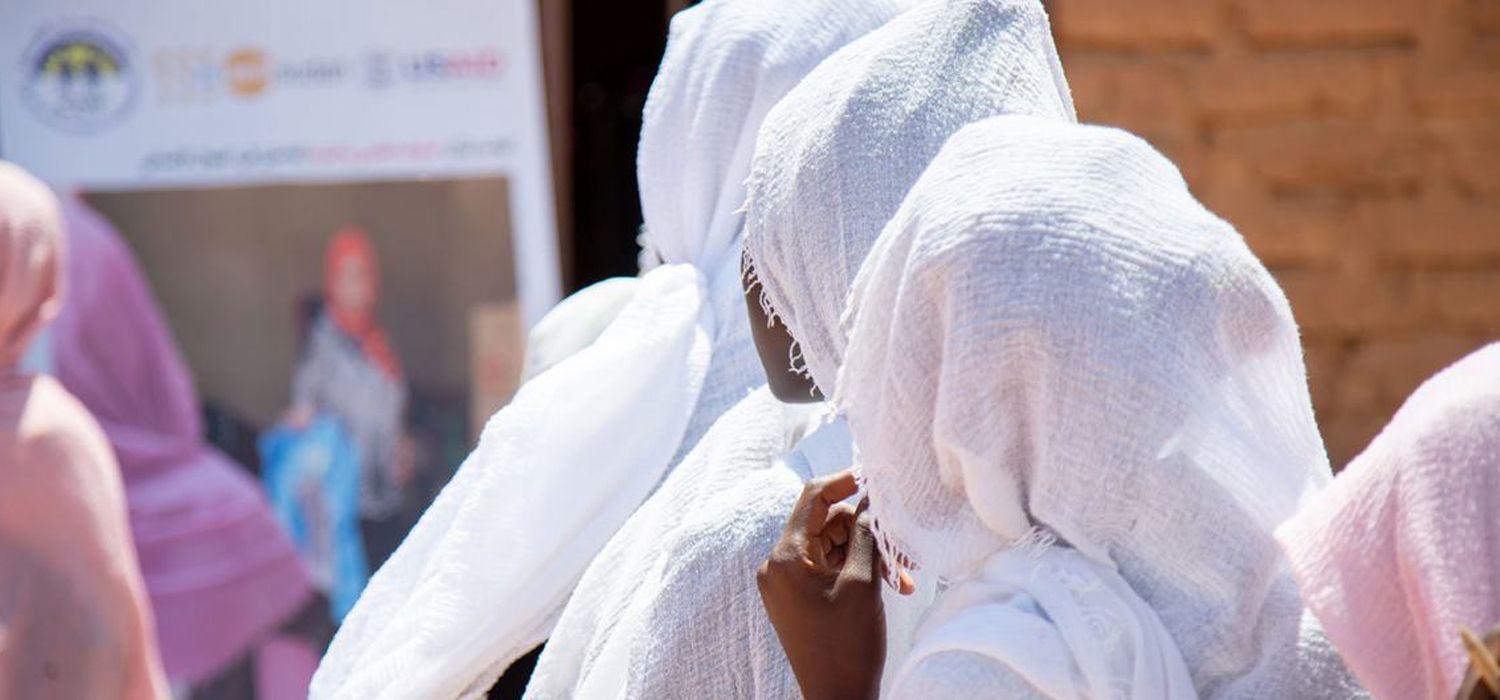 Press Release
Press Release
August 5, 2025 • 3 min read
Sudan's ongoing conflict has displaced over 12.3 million people and left millions of women and girls vulnerable to sexual and gender-based violence (SGBV). With EU-FPI support, GOAL and Christian Aid are launching an 18-month programme in North Darfur and South Kordofan to expand protection services, promote women's rights, and empower women-led peacebuilding initiatives. The programme takes a survivor-centred, community-led approach, leveraging local partnerships and proven behaviour change models.
Since April 2023, Sudan has faced escalating conflict, displacing over 12.3 million people; eight million internally and 3.3 million across borders (UNHCR/UNOCHA, Feb 2025). The country’s governance has fractured, health and legal systems have collapsed, and over 64% of the population (30.4 million) now require humanitarian aid (HRP 2025). Women and girls are disproportionately affected, with 11.7 million requiring protection services. Areas like North Darfur and South Kordofan, hosting around two million IDPs, have seen a sharp rise in SGBV, including sexual violence, forced marriage, and trafficking.
Women and girls in North Darfur and South Kordofan face extreme risks. UNFPA estimates 54% of the displaced population are women and girls, including 1.8 million of reproductive age. Key issues include:
- A 288% increase in demand for SGBV services (UN Women, 2024.)
- Severely poor food security among women-headed households.
- High rates of SGBV during conflict, displacement, and within IDP camps.
- Under-reporting due to stigma, fear, and lack of service trust.
Despite this, local women’s groups, often the first point of support, are trusted but under-resourced. In North Darfur, informal cross-tribal networks exist, and in South Kordofan, GOAL is already working with women-led organisations to build referral pathways. However, service provision remains fragmented:
- Health facilities lack standardised SGBV protocols.
- Social welfare protection plans are underfunded.
- Community-based actors need urgent support and coordination.

Funded by EU-FPI, GOAL and Christian Aid are implementing a new programme over the next 18 months from June 2025, to expand services and spaces for women to prevent and respond to SGBV, and to increase the inclusion and influence of women in peace building forums. In doing so, the action aims to improve the safety and protection of women in targeted areas of North Darfur and South Kordofan States.
To achieve this, GOAL and Christian Aid will focus on building local knowledge, capacities, networks, and infrastructure of local actors. They will leverage existing GOAL partnerships and programmes that support health services and referrals for SGBV survivors and apply an ‘ecological model’ along with proven Social Behaviour Change (SBC) approaches to alter attitudes and promote women’s access to influential spaces. The design is organised under three mutually reinforcing outcomes:
- Expanding access to comprehensive SGBV prevention and response services,
- Upholding women’s rights, and
- Promoting women’s inclusion in local peacebuilding and decision-making.
Speaking about the launch of this women’s empowerment and SGBV support programme in North Darfur and South Kordofan in Sudan, Sanjida Tawhid, GOAL Sudan Country Director, said
“This project takes a survivor-centred, community-led approach, addressing immediate protection needs and strengthening local capacity. Christian Aid brings valuable experience in conflict-sensitive SGBV programming through local partnerships, adding real depth to this project. It will strengthen local, women-led networks to improve protection outcomes and promote inclusive recovery in two of Sudan’s most high-risk states.”
Also speaking about the launch of this SGBV survivor-centred, community-led approach, Susan Wangai, Christian Aid’s Head of Programme Funding for Africa said,
“We are delighted to partner with GOAL to strengthen support for survivors of sexual and gender-based violence. Together, we aim to improved access to essential services, equip service providers with specialised training and reinforce the referral system so that women receive timely and effective care. Key initiatives will include community awareness campaigns, legal aid services and empowering women through skills development and income-generating opportunities. By focusing on comprehensive support and strengthening the voice and agency of women, we are committed to building more resilient communities in North Darfur and South Kordofan”
